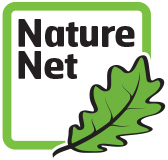We owe it to ourselves and to future generations to ensure all children have the opportunity to experience a nature-rich city. We know it is an essential component of health and well-being among individuals and communities. We also know that those who care about the environment are more likely to become its stewards.
The Initiative
The city of Madison, along with six other U.S. cities, was selected to participate in the Cities Connecting Children to Nature initiative in 2016, sponsored by the Children & Nature Network and the National League of Cities Institute for Youth, Education and Families. As a partnership between Public Health Madison and Dane County, City of Madison Parks and multiple community partners, the initiative recognizes a growing body of research that points toward the powerful benefits that even small amounts of time spent in natural settings can offer.
Planning & Assessment
Through the summer of 2016, six Wanda Fullmore interns assisted our staff with identification and analysis of Madison’s assets and opportunities to connect children to nature as part of a $25,000 planning grant. The voices of youth, particularly youth of color, were sought in the process, to ensure that youth leaders are actively shaping the process and outcomes and that all children have the opportunity to connect to nature in ways that are meaningful to them.
Results from the assessment process:
- Madison offers abundant nature-rich places, but barriers to equitable use exist. 13.4% of all land in the City of Madison is dedicated to parks with over 260 unique parks covering over 6,350 acres of land. The mean distance between any Madison Public School and a city park is 0.17 miles. Even with this level of park proximity, our assessment revealed many residents still feel reluctant to use or let their children use certain natural areas in the city due to safety concerns from both criminal activity and injury. Residents also indicated not feeling welcome or belonging in certain nature areas in Madison.
- Madison’s disparities require deliberate strategies to improve health and racial equity. Significant racial and ethnic disparities exist in education, health, housing, and overall well-being. As Madison’s population grows increasingly diverse, community members and organizations agreed that deliberate efforts must create equitable opportunities for children and families of color to spend time in nature.
- The City has exciting opportunities to incorporate connection to nature as a policy priority. The City of Madison is in the early stages of updating its comprehensive plan. At the same time, the respective parks departments and the City of Madison and Dane County are undergoing updates to their Parks and Open Space plans. All of these present incredible opportunities to prioritize nature-based play opportunities and programming that are welcoming and accessible to a range of communities.
- Programs are plentiful but not well coordinated. Even with an abundance of nature related programming in Madison, barriers to participation and enrollment exist. For some families, barriers to participation in nature-based programming include program cost, time of day, transportation, trust among parents/caregivers of program staff, and limited parental involvement in the child’s day-to- day life (e.g. some parents work two jobs and rely on older siblings for supervision of other children). Incorporating frequent exposure to nature seemed most achievable through building on already robust efforts by the Madison Metropolitan School District (MMSD) and Madison Schools & Community Recreation (MSCR) division.
See this document for additional ideas related to youth engagement.
Implementation
Using information and insights gathered during the planning phase, Madison put to use a $50,000 grant received from the National League of Cities and the Children and Nature Network to support 1 year of implementation efforts of the city plan to connect children to nature. Click below to see what years 1 & 2 put into action…
Connecting Children & Nature Projects